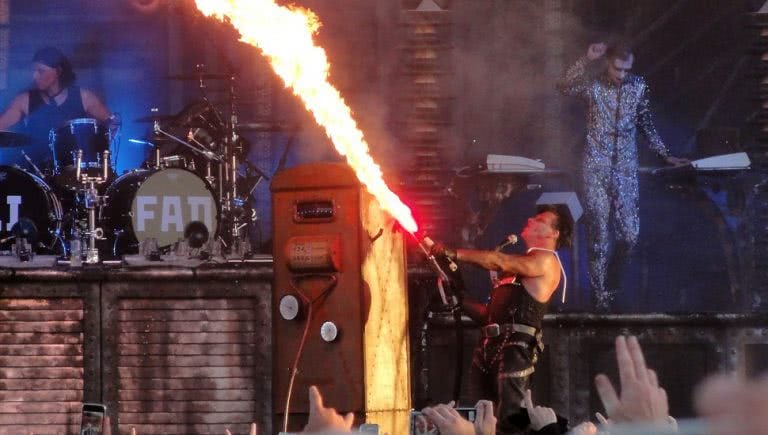Christoph “Doom” Schneider, drummer of industrial metal outfit Rammstein, has shared that his early band Die Firma had two spies in the lineup.
Chatting with Metal Hammer, Schneider kicked off the interview chatting about his place in the 1980s East Berlin music scene, and the ins and outs of his “new wave punk band,” Die Firma.
Noting that the band was “a little dark, with gothic influences,” and their songs were chock full of “lyrics that protested against the system,” he detailed that the band was “not permitted” and was “an underground band.”
“All the other Rammstein guys were in underground bands, too. We used to play in small clubs with all kinds of fans: freaks, goths, punks.”
Continuing on, he noted that the East Germany government “had their people everywhere,” noting that “Secret Service spies” infiltrated almost every scene: “What was funny was that I couldn’t imagine any harder band than mine at the time, and we had two people actually in the band who were spies – the singer and the keyboard player! Haha! Incredible.”
Noting that “they weren’t professional” spies, the Rammstein drummer clarified that the members of his band were “hired spies who received a little payment and every once in a while had to report about the music scene.”
As government restrictions at the time were very strict with the music scene, Schneider gave a little background on what you had to do to prove that you were a legit music group:
“To get your certificate you had to play in front of a commission, like a jury, who decided if you had the right songs… you were only allowed to play 40 percent cover versions in your set, the rest had to be your own music.”
He doesn’t have any qualms about how the certification occurred, as he notes “it wasn’t that bad an idea, because bands had to come up with their own stuff, and so there were a lot of interesting bands at that time.”
Detailing further, Schneider gives an insight to the East Berlin music scene, noting “we had professional bands which had all studied music and had official permission to play music. They were allowed to work as professionals and they had the right to charge money for their shows.
“If you were an amateur, you had to be classified at a certain level. There were three levels, and I reached the first one! I had a certificate which allowed me to charge four Deutschmarks (£1.30) per hour when I played a concert.
“Without this certificate it was illegal to play gigs, and you weren’t allowed to make contact with promoters without one. People accepted this because they had to.”

































